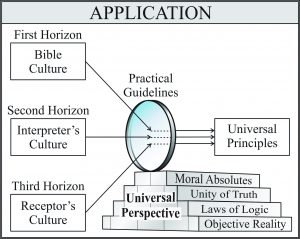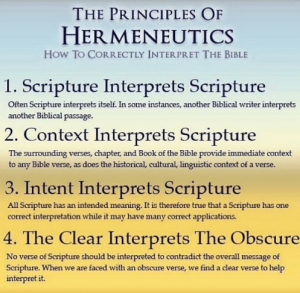
Shownotes
Welcome to Day 1579 of our Wisdom-Trek, and thank you for joining me.
This is Guthrie Chamberlain, Your Guide to Wisdom
Bible Study – Possible Interpretations – Meditation Monday
Welcome to Wisdom-Trek with Gramps! Wisdom is the final frontier in gaining true knowledge. Our mission is to create a legacy of wisdom, seek out discernment and insights, and boldly grow where few have chosen to grow before. Hello, my friend; this is Gramps; thanks for coming along on our journey to increase Wisdom and Create a Living Legacy Today is Day 1579 of our Trek, and it is time for Meditation Monday. Taking time to relax, refocus, and reprioritize our lives is crucial in order to create a living legacy. For you, it may just be time alone for quiet reflection. You may utilize structured meditation practices. In my life, Meditation includes reading and reflecting on God’s Word and in prayer. It is a time to renew my mind, refocus on what is most important, and making sure that I am nurturing my soul, mind, and body. As you come along with me on our trek each Meditation Monday, it is my hope and prayer that you, too, will experience a time for reflection and renewing of your mind.
We are continuing our series this week on Meditation Monday as we focus on Mastering Bible Study through a series of brief insights from Hebrew Scholar, Dr. Michael S. Heiser. Our current insights are focusing on accurately interpreting the Bible. Today let us meditate on:
Bible Study – Possible Interpretations
· Insight Sixty-One: It’s Okay When Bible Study Produces More than One Possible Interpretation
Most people do not like movies that seem to end ambiguously intentionally. Love it or hate it, we want closure. We don’t feel empowered by a director who lets me decide what their film meant. That just leaves us wondering why his or her mind was so clouded. Note to the director: the way to convince us you’re brilliant isn’t to show us that you’re incapable of precise thinking when it matters the most.
I’ve known people that approach Bible study the same way. They simply can’t tolerate the idea that there might genuinely be more than one interpretive option for a passage. The notion that alternatives exist disturbs them. The fact that those alternatives might be equally viable makes them break out in a cold sweat (or a rage, based on experience). I’ve never said it out loud, but I’ve thought it: ‘Please put your Strong’s Concordance down and calmly walk away from that verse.’
This sort of over-reaction telegraphs an emotional need for certainty. The thought that one’s tradition, pastor, or parents might have been incorrect about something in the Bible produces a sense of vulnerability. That’s unnecessary and, frankly, well beyond how God looks at the goals of Bible study.

Bible study shouldn’t be fear-based. God does not expect omniscience on the part of Bible students. He expects effort, humility, and a spirit of obedience to his will. Even if we don’t (and we cannot) know with certainty what the Bible teaches in every passage, we can still apply what we’re able to grasp (or think we’ve grasped) to our lives. Scripture is quite clear on fundamental virtues and vices, what pleases God and what offends him.
Another way to look at this has to do with the nature of Scripture. However small, resistance to uncertainty implies that there’s nothing in Scripture that could realistically transcend our intellectual ability to comprehend with certainty. It’s hard to consider that as anything but arrogance. As a long-time student of the Bible, I can tell you that the more I see in Scripture, the more I realize I don’t see. A Bible that’s been all figured out would lose its intrigue—and importance. Thankfully, that isn’t something we need to worry about.
· Insight Sixty-Two: Pay Attention to How Biblical Writers Interpret Other Biblical Writers

Biblical writers didn’t always produce original material. They used a variety of sources. This was especially true of New Testament writers. The reason is apparent, but sometimes overlooked: they had the Old Testament as a point of reference for what they had experienced and, therefore, what they wrote.
The New Testament writers cite the Old Testament hundreds of times. That sort of frequency demands attention. If you’re going to be serious about Bible study, you cannot neglect to observe what New Testament writers did with the Old Testament.
Unfortunately, failing at this simple strategy for understanding the Bible is something I’ve seen many times. The Bible students and pastors I’ve observed are mostly ignorant of the importance of the Old Testament. The prevailing attitudes are that the Torah and the Historical books (Genesis through 2 Chronicles) only have value for character sketches. The poetic books are relegated to devotional reading. And the prophets become fodder for end-times speculation, even though most prophecies you see were regarded as already fulfilled by the New Testament writers.
There are many reasons Bible students should pay attention to how New Testament writers cite the Old Testament. For example, doing so would reveal that prophecy is not always fulfilled according to literal expectations. Matthew saw the emergency trip of Jesus to Egypt and back as a “fulfillment” of Hosea 11:1. But Hosea 11:1 isn’t even a prophecy; it looks backward into Israel’s history, not forward into the future. Matthew’s point about Hosea is to strike an analogy between Israel and the Messiah. Jesus. The thought is an abstract one but theologically robust.
Equally striking is how writers assign Old Testament verses that have God in view to Jesus. When John has Jesus telling the woman at the well that he would give her living water, it’s no accident that he alludes to Jeremiah 17:13, which has God as the source of living water. The citation interchanges God and Jesus.
When the New Testament writers cite the Old Testament, they do so to make theological points. Observing them teaches us biblical theology. We would do well to see how biblical writers did their own Bible study.
Study this Book of Instruction continually. Meditate on it day and night so you will be sure to obey everything written in it. Only then will you prosper and succeed in all you do.
That is a wrap for today’s Meditation. Next week we will continue our trek on Meditation Monday as we take time to reflect on what is most important in creating our living legacy. Thank you for joining me on this trek called life. Encourage your friends and family to join us and then come along tomorrow for another day of ‘Wisdom-Trek, Creating a Legacy.’

If you would like to listen to any of the past 1573 daily treks or read the daily Journal, they are available at Wisdom-Trek.com. I encourage you to subscribe to Wisdom-Trek on your favorite podcast player so that each day will be downloaded to you automatically.
Thank you for allowing me to be your guide, mentor, and most importantly, I am your friend as I serve you through this Wisdom-Trek podcast and Journal.
As we take this Trek of life together, let us always:
- Live Abundantly (Fully)
- Love Unconditionally
- Listen Intentionally
- Learn Continuously
- Lend to others Generously
- Lead with Integrity
- Leave a Living Legacy Each Day
I am Guthrie Chamberlain….reminding you to ’Keep Moving Forward,’ ‘Enjoy your Journey,’ and ‘Create a Great Day…Everyday’! See you tomorrow for more daily wisdom!